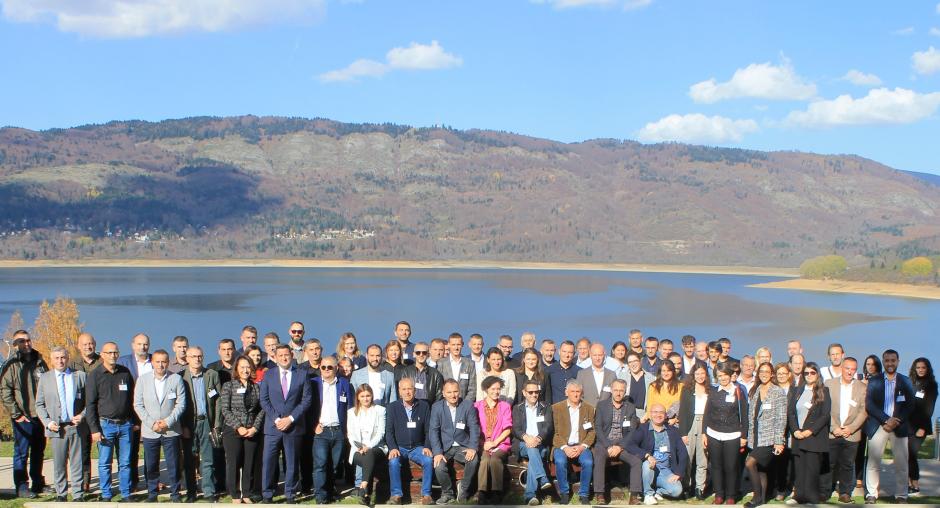Climate resilience, nature conservation and security in the Shar/Šara Mountains and Korab Massif area focus of workshop organized by OSCE and adelphi

On 2 and 3 November 2022, over 70 participants representing a diverse group of stakeholders from the four protected areas of Korab-Koritnik, Mavrovo, Shar Mountain and Sharri/Šara convened for a workshop in Mavrovo, North Macedonia, to discuss a shared vision to reduce climate-related security risks and identify joint projects and co-operation formats.
The protected areas are part of the Shar/Šara Mountains and Korab Massif, a biodiversity hotspot with outstanding natural value in South-Eastern Europe. The four protected areas combined cover more than 240,000 acres, making it one of the largest continuous protected areas in Europe.
“We are already witnessing the devastating impacts of climate change in our region. Over the past two decades, average temperatures have increased by 1.2°C, and heatwaves, floods, and wildfires are occurring more frequently and intensely. These present risks to the health and livelihoods of people, our shared ecosystems, food, water and energy security in the region,” said Naser Nuredini, Minister of Environment and Physical Planning of North Macedonia, at the opening of the workshop. “Today, together with our neighbours, we are embarking on a new initiative to explore joint measures to tackle these complex risks in this nature reserve,” Nuredini added.
The Shar/Šara Mountains and Korab Massif area is one of the seven climate-security hotspots identified in the 2021 OSCE-adelphi report Regional Assessment for South-Eastern Europe: Security implications of climate change.
“Our work in the Shar/Šara Mountains and Korab Massif is setting one of the first examples of seeking joint solutions to climate and biodiversity crisis through a security lens,” said Esra Buttanri, Senior Advisor at the Office of the Co-ordinator of OSCE Economic and Environmental Activities. “This workshop is a major step forward by stakeholders in the region to develop a co-operation strategy and an implementation plan with concrete projects.”
“Challenges, such as illegal logging, uncontrolled hunting and limited livelihood opportunities, are shared across the four protected areas, and therefore require collaborative action,” highlighted Pia van Ackern, Advisor at the Berlin-based think tank adelphi. “In response, the stakeholders developed a set of concrete project ideas that would not only strengthen the resilience, security and livelihoods of communities in the area but also contribute to good neighbourly relationships.”
The Workshop “Climate Change and Security in the Shar/Šara Mountains and Korab Massif Area: Developing a joint co-operation/adaptation strategy and an implementation plan” was organized within the framework of the OSCE extra-budgetary project “Strengthening responses to security risks from climate change in South-Eastern Europe, Eastern Europe, the South Caucasus, and Central Asia,” which is implemented in partnership with adelphi and funded by Andorra, Austria, Czech Republic, Finland, France, Germany, Italy, Liechtenstein, Luxembourg, Norway, Poland, Sweden, and the United States.
